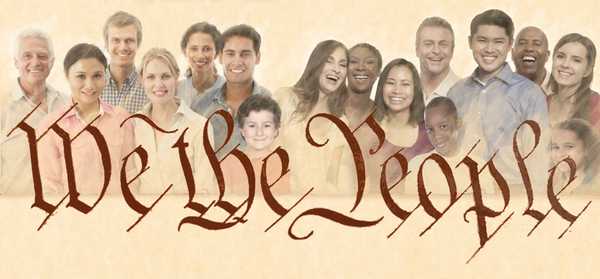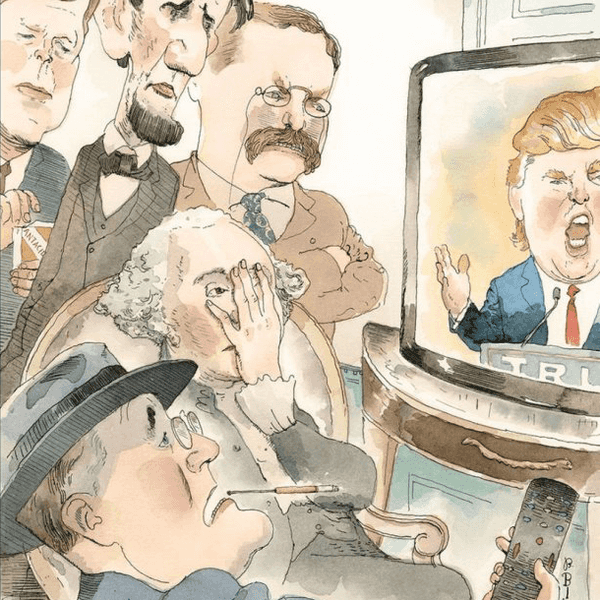On November 7, a college friend posted a picture on Facebook of a beaming Hillary Clinton and captioned it with a quotation from Martin Luther King, Jr.: “the moral arc of the universe is long, but it bends toward justice.” The implication was clear: the presumed victory of Hillary Clinton the next night would be a world-historical event bearing forth a new stage in history’s moral arc.
I commented that, for one, the idea of there being a “right side of history” is philosophically no good. As The Atlantic’s David Graham put it last year, “The problem with this kind of thinking is that it imputes an agency to history that doesn’t exist…history is not a moral force in and of itself, and it has no set course.” I told my friend that, as a philosophy major, he should be aware of this and not invoke faulty ideas like “the moral arc of the universe.”
He scoffed that the quotation was meant to be inspirational rather than philosophical, and that I was weird to criticize his post as though it had real philosophical content. I replied that he needed to grant (or somehow contest) Graham’s point about the quotation wrongly attributing agency to history itself, and that this error draws recognition away from the hard work involved in improving society.
Looking back, that last point is too sweeping. It’s possible to think about “the moral arc of history” this way: throughout history humans inevitably improve their understanding of societal justice, and this always-improving understanding forever translates into efforts that improve society. I think that this view is prone to what C.S. Lewis called “chronological snobbery” – the tendency to assume that whatever comes later is inherently better than what came earlier – but at least this view recognizes people’s efforts as crucial to societal improvement.
It's also possible, though, to think that history itself – the simple passing of time in human societal existence – determines the improvement of society, and that the individual’s responsibility is basically just to not resist “history” as it steamrolls forward. Maybe this view isn’t so much explicitly believed or even really thought as it is felt; one feels certain societal developments as improvements and half-consciously attributes them to an inevitable unfolding of cosmic justice.
I get how this is a comforting feeling. I think people are right to feel anxious about the state of the world, and it’s nice to sense that the world just will get better despite human errors.
And I get how, for many people, Hillary Clinton’s candidacy, and especially her prospective victory, symbolized certain important forms of societal improvement. I, for one, think that women have just as much place in high political office as men do and that someone who has logged nearly a quarter-century in high-level political situations is almost certainly more qualified for the U.S. presidency than Donald Trump. If you believe such things, of course you’d be tempted to see, in every development that seemingly favored Clinton, the providential hand of History. Through this intuitive lens, “grab them by the pussy” (for instance) was less a fortunate-but-fallible obstacle to Trump than the Universe’s way of confirming Clinton’s forthcoming victory. Did you hear what he did this time? Now there’s definitely no chance of him winning.
Yet he won. As a second contribution in this political post-mortem season, I’ll briefly point out two ways that “the right side of history” might actually have helped him.
First, as I pointed out above, the notion of “the right side of history” can make it easy to overlook the work involved in improving a society. And the easier it is to overlook that, the easier it is to neglect one’s own role in the larger task. I hardly doubt that, in the crucial states by which Clinton could’ve defeated Trump, there were more people who preferred Clinton to Trump than who voted for Trump. If a higher proportion of Clinton’s more lukewarm supporters had gone to vote for her, she would’ve won. And while many other factors contributed to the widespread sense of Clinton’s inevitability, I suspect that many of her supporters felt, deep down, that History would never inflict a Trump presidency on America. So why should they inconvenience themselves by actually going out to vote for Clinton? (Especially if they found Clinton pretty uninspiring in the first place.)
Second, it’s crucial to consider what it feels like to be on “the wrong side of history.” From a 2014 essay by Michael Hanby:
We must recognize first of all what this appeal to the inevitability of history is. It is not an argument but a 'conversation stopper' designed to put an end to argument by urging opponents of [“progress”] to resign themselves to a fate which they are powerless to resist and exempting advocates of [“progress”] from the burden of having to think about, much less defend, their position with depth or rigor. And by placing opponents of [“progress”] beyond the pale of progress and civilization, it encourages those who fancy themselves on the 'right side of history' to treat their opponents with contempt. The appeal to history is thus a nifty little piece of rhetorical violence, a ‘performative utterance’ that seeks to bring about the fate that it announces and to excuse the opposition’s loss of agency as the inevitable triumph of justice.
Hanby is right to emphasize the contempt and ‘violence’ felt by those who are said to be condemned by “history.” If you feel that culturally-dominant forces are out to wreck people like you, and that they’ll never turn from their smug sureness enough to bother actually arguing against your supposed errors or even really hear any argument at all sympathetic to your side of things, of course you’ll reach for any weapon that looks like it can protect you. (And this is true no matter how morally horrible your ideas may be.) This explains, for instance, much of evangelicals’ overwhelming electoral support for Donald Trump: though I think that Trump is at best deeply untrustworthy on religious liberty and that many on the religious right made total asses of themselves advocating for him, religious conservatives weren’t wrong to think that the Democratic Party has largely written them off as “deplorable” and unworthy of accommodation.
Ultimately, the notion of a “right side of history” weakens efforts toward societal improvement while energizing resistance. A “moral arc of history” can only weigh us down, so let’s carry forward without one.





















